Episodes
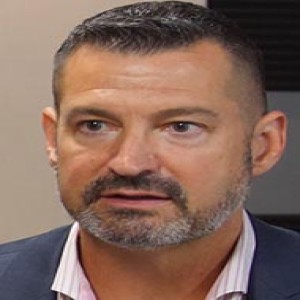
Wednesday Jul 10, 2019
Duncan Wilson - Port of Vancouver says it's all quiet on the waterfront
Wednesday Jul 10, 2019
Wednesday Jul 10, 2019
Ep 250
Guest: Duncan Wilson
Headline: Trouble on the Waterfront - Rebuttal
The Port of Vancouver says the plan to expand container traffic at Delta Port is unfolding in a manner that ensures the authority meets its mandates. The port authority is charged with the safe, environmentally and financially sound management of one of the largest ports on the West Coast of North America.
And that brings us to this week’s Conversation. As outlined in a previous episode, one of the Port’s terminal operators says it is being shut out of the container site expansion and believes the Port of Vancouver is in a conflict of interest.
We invited Duncan Wilson of the Port of Vancouver to join us for a Conversation That Matters about the arduous process that has been underway for many years to determine how to meet the demand for container services in the future.
I also encourage you to view the Conversation I had with Doron Grosman of Global Container Terminals on this same issue. https://vimeo.com/342314601
Conversations That Matter is a partner program for the Center for Dialogue at Simon Fraser University. The production of this program is made possible thanks to the support of the following and viewers like you.
Please become a Patreon subscriber and support the production of this program, with a $1 pledge https://goo.gl/ypXyDs
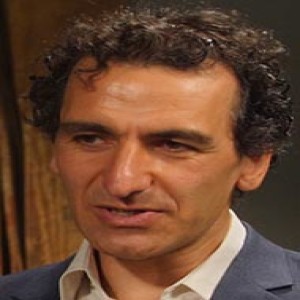
Friday Jul 05, 2019
Simon Donner - Digging into the Science of Climate
Friday Jul 05, 2019
Friday Jul 05, 2019
Ep 249
Guest: Simon Donner
Headline: Digging into the Science of Climate
You would think with all the chatter going on about climate that we’d all have a good understanding on the elements of our atmosphere, the role of carbon and other greenhouse gases and the correlation between human activity and climate change.
If you consider yourself to be informed: without looking it up, what is the number one greenhouse gas? If you answered water vapour, you’d be right. It accounts for 80 per cent of total greenhouse gas mass and 90 percent of volume. What about CO2? What percentage is it in the total mix of greenhouses gases? And if you know that, what about anthropogenically generated CO2? What percentage does it account for?
Then what is the dynamic interplay between CO2 within the troposphere (where we live)? And what about CO2 in the stratosphere? Why does CO2 heat the earth in one atmospheric layer and cool it in another? Then there’s the sun, which is hot – as much as 17 million degrees at the core and 5,800 degrees Celsius at the photosphere or surface. Add in solar magnetic energy and coronal mass eruptions, and the climate starts to become challenging to understand.
The Canadian government is now declaring we’re in an emergency state when it comes to climate. We sat down with climate professor Simon Donner for a Conversation That Matters about the science of climate, how it works, what we can do and the reality of our climate and the future.
I also encourage you to view the Conversation I had with Freeman Dyson of the Institute for Advanced Studies on CO2 why the increase in concentration is turning the earth greener. https://urlzs.com/hGeUz
Conversations That Matter is a partner program for the Center for Dialogue at Simon Fraser University. The production of this program is made possible thanks to the support of the following and viewers like you.
Please become a Patreon subscriber and support the production of this program, with a $1 pledge https://goo.gl/ypXyDs

Thursday Jun 20, 2019
Site C Revisited - Ken Boon and Bob Fedderly
Thursday Jun 20, 2019
Thursday Jun 20, 2019
Ep 248
Guest: Ken Boon and Bob Fedderly
Headline: Site C revisited
If you thought the fight over Site C was over, well, you’d be wrong. The people who have been opposed to the building of the dam? They say isn’t needed and are watching closely as the mega-project continues to claws its way into the banks of the Peace Canyon.
The Peace Valley Landowner Association, along with the Blueberry River and Moberly First Nations, continue to argue the project is not needed, is environmentally unsound and will ultimately be a colossal waste of money. As proof, they point to the C.D. Howe report of January 2019, which says that cancelling the project and replacing it with alternative energy sources will be less expensive than completing the project, even when factoring in sunk costs.
The Boons, whose farm has been expropriated because it will be underwater once the dam is completed, invited us to take a look at the project from his perspective, which he maintains is not needed.
We sat down with Ken Boon and Bob Fedderly in the Boon family kitchen for a Conversation That Matters about the project Premier Horgan campaigned against only to approve once in office.
I also encourage you to view the Conversation I had with past BC Hydro CEO Jessica McDonald on why the Site C dam was required: https://www.youtube.com/watch?v=i_JnO8yIO_Q&t=1s
Conversations That Matter is a partner program for the Center for Dialogue at Simon Fraser University. The production of this program is made possible thanks to the support of the following and viewers like you.
Please become a Patreon subscriber and support the production of this program, with a $1 pledge https://goo.gl/ypXyDs
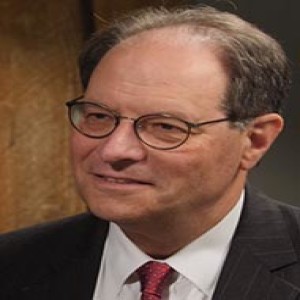
Friday Jun 14, 2019
Doron Grosman - Trouble on the Waterfront
Friday Jun 14, 2019
Friday Jun 14, 2019
Ep 247
Guest: Doron Grosman
Headline: Trouble on the Waterfront
Welcome to Conversations That Matter. This episode is brought to you by Odlum Brown, a client-focused investment firm that starts client relationships with straightforward conversations focused on you, your aspirations, and your investment priorities.
Odlum Brown has been a supporter of Conversations That Matter from the day we started the show. Their only condition was that we provide a non-biased conversation with people from all sides of all sorts of issues.
Of course, we couldn't produce this show without the support of Oh Boy Productions. If you're looking to produce a cast, be it video or a podcast, I suggest you reach out to Oh Boy. They can help you produce it, and they can help you build your audience.
And we also need your support.
Please pledge your dollar per show at patreon.com/conversationsthatmatter because those dollars add up and play an important role in helping us produce the show.
Now to this week's episode.
The Port of Vancouver is a busy mix of traffic on the water – cruise ships, grain ships, automobile transport ships and container ships to name but a few of the 12,ooo ships that call in to port every year.
Vancouver is one of the most complex ports in the world. The reasons are many: the port is federally controlled, it’s within the province of British Columbia and there are 16 different cities or municipalities and several Coast Salish First Nations lands that are home to shipping facilities.
There are so many elements within the Greater Vancouver region that intersect with the cities that play host to the Port; it’s hard to know where city boundaries end and the Port’s jurisdiction begins. There is a vast array of roads and rail lines that are all on Port land and while you may have some access to certain stretches of the shoreline, it’s up to the Port to decide if you can get close to the water.
The Port owns the land, it controls its use and it is responsible for many of the transportation decisions throughout the region. The expansion of the Port Mann Bridge and highway, as you will recall, was to enhance the “Gateway” image.
It has worked. Port Metro Vancouver is a success. It is Canada’s largest port and it handles an enormous amount of cargo. In fact it is the most diversified port in North America. In 2018, more than 146 million tonnes of product worth more that $200 billion passed through the port.
In total, there are 27 major marine cargo terminals that are served by three Class 1 railroads and related services. And let’s not forget the Canada Place cruise terminal, which is homeport to the Vancouver–Alaska cruise industry.
The economic impact of the Port is substantial. More than 115,000 people are directly or indirectly reliant on the Port for their paycheck which totals more than $7 billion annually in wages.
The port authority manages over 16,000 hectares of water, more than 1,000 hectares of land and close to 350 kilometres of shoreline.
Not wanting to sound like an advertisement for Port Metro, but I encourage you to watch the interview I had with Peter Xotta from Port Metro Vancouver https://www.youtube.com/watch?v=z2op-v_tEKg&t=50s and to also visit the port’s website where it lists its responsibilities, which include but are not limited to safety and security, permitting, environmental reviews planning, transportation operations, infrastructure development, customer service, communication, collaboration and real estate management.
The latter of which brings me to our Conversation today.
The Port of Vancouver is so big and it works with enormous companies and it’s all just over there beyond your view – until today, when our guest, the President and CEO of Global Container Terminals, said you as a taxpayer deserve to know how the administrators of the Port do business.
He claims they are about to make a land use and terminal decision that is a conflict of interest. Doron Grossman says the port wants to bump his company off the bidding list to expand Deltaport to double its current capacity by 2030.
We invited Doron Grosman to join us for a Conversation That Matters about where to draw the line when an authority with too much power determines it can do as it pleases.
Conversations That Matter is a partner program for the Center for Dialogue at Simon Fraser University. The production of this program is made possible thanks to the support of the following and viewers like you.
Please become a Patreon subscriber and support the production of this program, with a $1 pledge https://goo.gl/ypXyDs
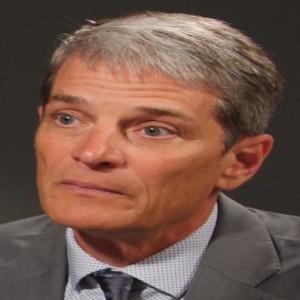
Friday Jun 07, 2019
Kevin Desmond - Addressing Transportation Needs to 2050
Friday Jun 07, 2019
Friday Jun 07, 2019
Ep 246
Guest: Kevin Desmond
Headline: Addressing our Transportation Needs
If you can’t move, you are a prisoner. No one likes to sit in traffic. But, how do you move more people on transportation corridors that are already full at peak times? That is the question Translink is asking all of us in the Greater Vancouver area to help them address.
The transit authority just released Transport 2050 with the aim of asking users to contribute ideas based on their experiences here and from other places they know or have experienced. The idea is to consolidate those suggestions, package them up and then present them to all of us for additional input. Translink plans on going to the public for input three times before presenting its plan to the Mayor’s council.
Desmond points out that because Translink is more than just Skytrain, buses and seabuses they are seeking input from drivers, cyclists and pedestrians. We invited Translink CEO Kevin Desmond to join us for a Conversation That Matters about the transportation authorities long range plan to meet the needs of the region over the next three decades.
Conversations That Matter is a partner program for the Center for Dialogue at Simon Fraser University. The production of this program is made possible thanks to the support of the following and viewers like you.
Please become a Patreon subscriber and support the production of this program, with a $1 pledge https://goo.gl/ypXyDs

Friday May 31, 2019
Dr. Ali Tehrani - Defeating Cancer
Friday May 31, 2019
Friday May 31, 2019
Ep 245
Guest: Dr. Ali Tehrani PhD
Headline: Defeating Cancer
Welcome to Conversations That Matter. This episode is brought to you by Odlum Brown, a client-focused investment firm that starts client relationships with straightforward conversations focused on you, your aspirations, and your investment priorities.
Odlum Brown has been a supporter of Conversations That Matter from the day we started the show. Their only condition was that we provide a non-biased conversation with people from all sides of all sorts of issues.
Of course, we couldn't produce this show without the support of Oh Boy Productions. If you're looking to produce a cast, be it video or a podcast, I suggest you reach out to Oh Boy. They can help you produce it, and they can help you build your audience.
And we also need your support.
Please pledge your dollar per show at patreon.com/conversationsthatmatter because those dollars add up and play an important role in helping us produce the show.
Now to this week's episode.
It’s a great big audacious goal – defeating cancer, that is. But that’s exactly what the team at Vancouver-based Zymeworks plans to do. The biotech company has developed protein therapeutics for the treatment of cancer and for autoimmune and inflammatory diseases. They’re also developing a new delivery system and research process.
The process and the next-generation therapeutics they’ve created allow for the targeting of differentiated biological pathways that lead to internal, partnered therapies. Those targeting platforms have names like Azymetric platform and Zymelink Conjugation Platform and Cytotoxins.
The Azymetric platform, for example, spontaneously assembles antibodies into a single molecule that can easily adapt to rapidly screen, target and sequence combinations of bispecific activities which significantly reduce drug development timelines.
The company’s lead product ZW25 is currently being elevated to Phase 2 clinical trials targeting two distinct domains of the human epidermal growth factor receptor 2, or HER2 – a protein that promotes the growth of cancer cells.
The company was founded in 2003 and is working in partnership with global pharmaceutical companies such as Merck, Eli Lilly, Johnson & Johnson and others.
In addition to taking on cancer, Zymeworks is playing a fundamental role is ensuring Vancouver becomes a global centre of excellence in biotech. The company is led by Dr Ali Therani, who holds degrees in Biochemistry from the University of Massachusetts and has a Doctoral degree in Microbiology and Immunology from UBC.
Not only is he a brilliant scientist but he also has an impressive track record in leadership, having been awarded the UBC Faculty of Science Achievement Award for Outstanding Leadership in 2002. Dr Tehrani says, “We’ve done a really good job of educating brilliant scientists and then watched them leave Canada. I want to give them a reason to come home.”
We invited Dr Ali Tehrani to join us for a Conversation That Matters about the biotechnical innovations that are being developed at Zymeworks and his company’s role in turning Vancouver into a centre of excellence and influence in scientific research.
Conversations That Matter is a partner program for the Center for Dialogue at Simon Fraser University. The production of this program is made possible thanks to the support of the following and viewers like you.
Please become a Patreon subscriber and support the production of this program, with a $1 pledge https://goo.gl/ypXyDs

Wednesday May 29, 2019
Simon Jackson: Falling in Love with Mother Nature
Wednesday May 29, 2019
Wednesday May 29, 2019
Ep 244
Guest: Simon Jackson
Headline: Falling in Love with Mother Nature
Welcome to Conversations That Matter. This episode is brought to you by Odlum Brown, a client-focused investment firm that starts client relationships with straightforward conversations focused on you, your aspirations, and your investment priorities.
Odlum Brown has been a supporter of Conversations That Matter from the day we started the show. Their only condition was that we provide a non-biased conversation with people from all sides of all sorts of issues.
Of course, we couldn't produce this show without the support of Oh Boy Productions. If you're looking to produce a cast, be it video or a podcast, I suggest you reach out to Oh Boy. They can help you produce it, and they can help you build your audience.
And we also need your support.
Please pledge your dollar per show at patreon.com/conversationsthatmatter because those dollars add up and play an important role in helping us produce the show.
Now to this week's episode.
Falling in love with the majesty of Mother Nature early in life is a proven way of instilling a passion for protecting the environment. The best way to do that is to provide an immersive experience, as in taking the class out into the forest. The challenges to doing so are too many to overcome.
The next best solution is to provide teachers with online resources that literally pop, or are exciting and intriguing. Curriculum-based materials that instill a foundation of nature literacy designed to enhance critical thinking skills that promote thoughtful decision making are crucial.
Why is this important? The answer comes in every decision we all make everyday: decisions that consider the impact on the environment when we purchase a product, manage our trash, determine our mode of transportation and how we use energy. Every decision matters and when we understand our role in the complex weave of combined actions, then we can collectively work towards a better future.
We invited Simon Jackson of Nature Labs to join us for a Conversation That Matters about the project that he and Jill Cooper designed to change students’ relationship with nature.
Conversations That Matter is a partner program for the Center for Dialogue at Simon Fraser University. The production of this program is made possible thanks to the support of the following and viewers like you.
Please become a Patreon subscriber and support the production of this program, with a $1 pledge https://goo.gl/ypXyDs
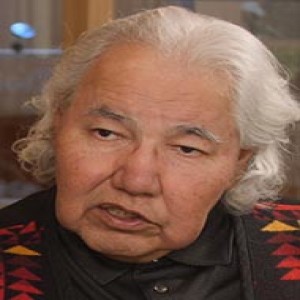
Wednesday May 29, 2019
Senator Murray Sinclair: Reconciliation; Where to from here?
Wednesday May 29, 2019
Wednesday May 29, 2019
Ep 243
Guest: Senator Murray Sinclair
Headline:Reconciliation; Where to from here?
Are we on the cusp of a breakthrough in relations between indigenous people in Canada and the rest of the country? Or are we swirling around in a quagmire that provides us with an illusion of progress, only to consume it at the point of hope?
When the current Prime Minister was elected, he indicated he was going to tackle the issues that divide us and embrace our common humanity. Steps would be taken to move us closer to true reconciliation. But that begs the question – what is reconciliation?
The TRC, or Truth and Reconciliation Commission, was created to provide a venue for victims of the residential school system to be heard – to have their stories become a part of the public record. But it was not, nor is it a guidebook to a coming together of equals.
We invited Senator Murray Sinclair to join us for a Conversation That Matters about some of the elements that are required to create a society that goes beyond lip service and become one of respect and acknowledgement of our First Peoples rightful place in the country and in our society.
Conversations That Matter is a partner program for the Center for Dialogue at Simon Fraser University. The production of this program is made possible thanks to the support of the following and viewers like you.
Please become a Patreon subscriber and support the production of this program, with a $1 pledge https://goo.gl/ypXyDs

Wednesday May 29, 2019
Geordie Rose: Humanoid Artificial Intelligence
Wednesday May 29, 2019
Wednesday May 29, 2019
Ep 242
Guest: Geordie Rose
Headline: Humanoid Artificial Intelligence
Humanoid artificial intelligence is coming and there’s a good chance it may come to life in Vancouver. That’s because some of the brains at work creating AI – human-like AI – live and work here. The odds that they will succeed are high, they have an amazing track record. One of those brains is the mastermind behind the development of quantum computing that has manifested itself into the company known as D-Wave.
At the core of the development on humanoid AI sits an existential question: what does it mean to be human? What motivates us, how do we decide right from wrong and whose morals constitute the foundation of the programming of the machine that will self-learn? These are just a few of the questions that surround what many believe will be the last great human discovery.
We invited Geordie Rose of Sanctuary AI to join us for a Conversation That Matters about Artificial Intelligence – why, what, when, where and how soon.
Conversations That Matter is a partner program for the Center for Dialogue at Simon Fraser University. The production of this program is made possible thanks to the support of the following and viewers like you.
Please become a Patreon subscriber and support the production of this program, with a $1 pledge https://goo.gl/ypXyDs

Tuesday May 07, 2019
Kevin Obermayer and Robert Lewis-Manning - Shipping on the West Coast
Tuesday May 07, 2019
Tuesday May 07, 2019
As seaports on the West Coast of North America, Vancouver and Prince Rupert play a vital role in the economy of the country, both import and export. If we buy any goods from Asia, they come into the country through these ports.
If Canadian producers want to sell our goods to the world, most of them produced this side of the Great Lakes pass through West Coast ports. Year after year, more than 12,000 ships that require a licensed pilot on-board came and go safely.
The questions that currently hang over the industry and the waters of the West Coast are an increase in oil tankers and the impact all of the ships have during the two plus months when the southern resident whale population visits the Salish Sea.
And then add in Bill C-48 and the impact it may have on the movement of oil-based resources, and we’re left wondering what is the state of shipping on the west coast.
We invited Kevin Obermeyer the CEO of the Pacific Pilotage Authority and Robert Lewis-Manning to join us for a Conversation That Matters about the state of shipping on Canada’s West Coast, the track record, the challenges and the opportunities.
Conversations That Matter is a partner program for the Center for Dialogue at Simon Fraser University. The production of this program is made possible thanks to the support of the following and viewers like you.
Simon Fraser University’s Centre for Dialogue presents Conversations That Matter. Join veteran Broadcaster Stuart McNish each week for an important and engaging Conversation about the issues shaping our future.
Please become a Patreon subscriber and support the production of this program, with a $1 pledge https://goo.gl/ypXyDs

